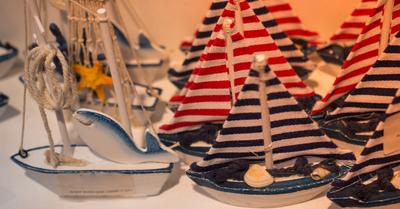Table of contents
Brilliant Uses for Your Boat Hook
Have you ever wondered about the full potential of that trusty boat hook? No longer just a simple stick to grab things, your boat hook is a multipurpose marvel.
Whether you're on a serene lake or facing the challenges of the open sea, it's your go-to tool.
We'll explore no less than eight brilliant ways to put your boat hook to great use.
1. Retrieving Items Overboard
When you find yourself in the unfortunate situation of losing items overboard on a windy day, your boat hook becomes a trusty companion.
Its versatility allows you to extend its reach and use the hook end to effortlessly retrieve hats, gear, or anything else that has taken an unexpected plunge into the water.
This simple yet ingenious use of the boat hook ensures that valuable items don't go adrift and are easily recovered.
2. Assisting with Docking
Docking your boat can be a nerve-wracking endeavor, especially when dealing with unpredictable wind or currents. Your boat hook becomes your second pair of hands in such situations.
Using it to securely grab dock lines or reach out for cleats significantly simplifies the docking process. This added control and precision make docking a breeze, even in challenging conditions.
3. Clearing Debris
Navigating water bodies often means encountering various forms of debris that can potentially jeopardize your boat's safety and performance. Your boat hook, with its multifunctional utility, plays a crucial role in maintaining a hazard-free voyage.
This versatile tool empowers boaters to swiftly and effectively clear away any floating debris that may impede their journey.
Whether it's stray branches, plastic litter, or any other objects that could pose risks such as hull damage or propeller entanglement, your boat hook provides a convenient and safe means of removal.
The boat hook's role as a reliable tool for maintaining a hazard-free route underscores its significance in every boater's toolkit, enhancing the overall safety and comfort of every journey.
4. Fending Off from Obstacles
In tight quarters or busy marinas, preventing your boat from rubbing against docks or other vessels is essential to avoid unsightly scratches and damage.
Your boat hook serves as a robust buffer, allowing you to fend off obstacles gently. This prevents collisions and maintains the pristine condition of your boat, ensuring a hassle-free docking and maneuvering experience.
5. Emergency Rescue
In emergencies where a rescue float or a person is drifting away from the boat, your boat hook becomes a critical tool for providing quick and effective aid.
Its extended reach allows you to offer assistance to someone in the water, whether it's helping them back on board or providing support until further help arrives.
This lifesaving capability underscores the boat hook's importance as a safety tool on the water.
6. Navigation Aid
Navigating close to shore, shallow areas or pilings requires precision to avoid potential hazards. Your boat hook serves as an invaluable aid in these scenarios, allowing you to test water depths or gently push away from unwanted proximity to obstacles.
Using your boat hook as an extension of your senses helps you navigate through tricky waters and maintain a safe distance from potential hazards.
7. Threading Mooring Lines
When facing the challenge of handling mooring lines in gusty winds, your boat hook becomes an indispensable tool.
Its extended reach and hook end allow you to effectively manage the ropes by attaching them to the hook and skillfully threading them through buoys or rings.
This clever application not only streamlines the mooring process but also ensures the safety and stability of your boat, making it an essential component of any boater's toolkit, especially when dealing with challenging weather conditions.
8. Emergency Fishing Tool
When you unexpectedly run out of bait while out on the water, your boat hook can come to the rescue as an emergency fishing tool.
This ingenious adaptation involves securing a fishing line to the hook and using it as a makeshift fishing apparatus.
With patience and a bit of improvisation, you can cast your line, wait for a nibble, and potentially reel in a catch to enjoy while onboard.
9. Accessing Overhead Storage
Boats often have overhead storage compartments that can be challenging to reach. However, your telescopic boat hook, equipped with a convenient locking mechanism, makes accessing these stowaways simple and hassle-free.
Extend the hook to the desired length, lock it in place, and use it to retrieve gear, supplies, or equipment stored in those hard-to-reach spaces. This practical feature ensures that everything you need is easily within your grasp.
10. Clearing Spider Webs
The surprise of encountering a spider web is something no one wants while on a boat. Fortunately, your boat hook can serve yet another purpose in maintaining a clean and pleasant boat environment.
Utilizing the brush end of the boat hook effectively sweeps away spider webs and any other unwanted debris. This ensures that your boat remains a comfortable and spider-free zone for you and your passengers.
11. Checking Anchor Set
Dropping anchors in unfamiliar waters can be a bit uncertain without a visual confirmation. Your boat hook can help in this situation by providing a means to assess the anchor's grip.
Simply use the weighted hook end to feel the anchor's hold on the water bed.
This tactile method offers peace of mind, ensuring that your anchor is properly set and your boat remains secure in its chosen location.
12. Emergency Flagpole
During emergencies, quick thinking and resourcefulness are paramount, and your boat hook's adaptability shines through in this scenario.
Its substantial length and robust construction make it the perfect makeshift flagpole to hoist a distress signal.
Displaying this signal high above the water conveys the urgency of your situation but also increases your visibility.
This helps you garner assistance swiftly and highlights the boat hook's pivotal role as an essential safety tool in unforeseen circumstances on the water. Check out this video for more information on the uses of a boat hook.
The Cultural Significance of Boat Hooks in Different Maritime Traditions
You've probably spotted a boat hook aboard vessels, old and new, but have you ever wondered about their deeper role in seafaring lore?
These trusty tools aren't just for snagging lines and fending off docks; they're steeped in history and resonate with cultural significance.
Let's hoist the sails on this journey through time and culture, where the boat hook is more than just a tool—it's a timeless testament to seafaring heritage.
So, next time you handle a boat hook, remember you're not just holding a tool but a piece of maritime history that has weathered storms, wars, and peaceful passages, linking you to countless sailors across time and tide.
Frequently Asked Questions
Here are the FAQs on boat hooks.
What features should I look for when choosing the best telescoping boat hook for my vessel?
You want a boat hook that's robust yet lightweight, so materials like aluminum or high-grade plastic are top choices. Go for a hook with a non-slip grip and a locking mechanism that ensures it stays extended during use.
In what situations would a Garelick or Eversprout boat hook be preferable, and why?
Garelick boat hooks are often a go-to for their sturdiness and reliability, perfect for when you're battling against strong currents or need a firm push-off from a dock. Eversprout, on the flip side, might be your pick for lighter duties when storage space is a premium.
What's the ideal length for a boat hook when considering the size and type of my boat?
For small boats, a hook around 3-5 feet might suffice. Mid-sized crafts can usually rely on a 6-8 foot hook. Superyachts and larger vessels might need hooks that extend beyond 8 feet to ensure they've got the distance covered.
What safety precautions should be taken when using a boat hook?
Ensure the boat hook is in good condition, and the hook or attachment is secure. Always exercise caution when using it, especially when assisting someone in the water, to avoid injury.


































































































